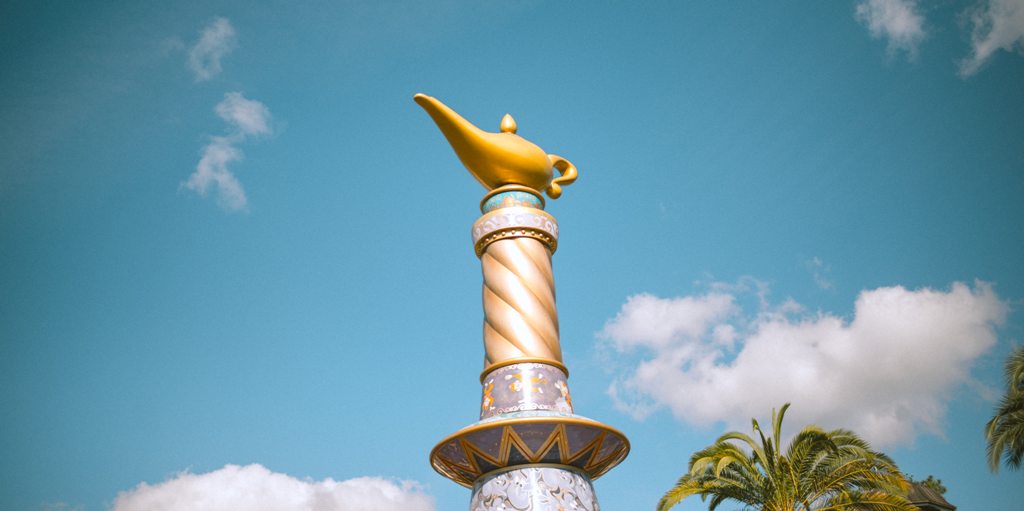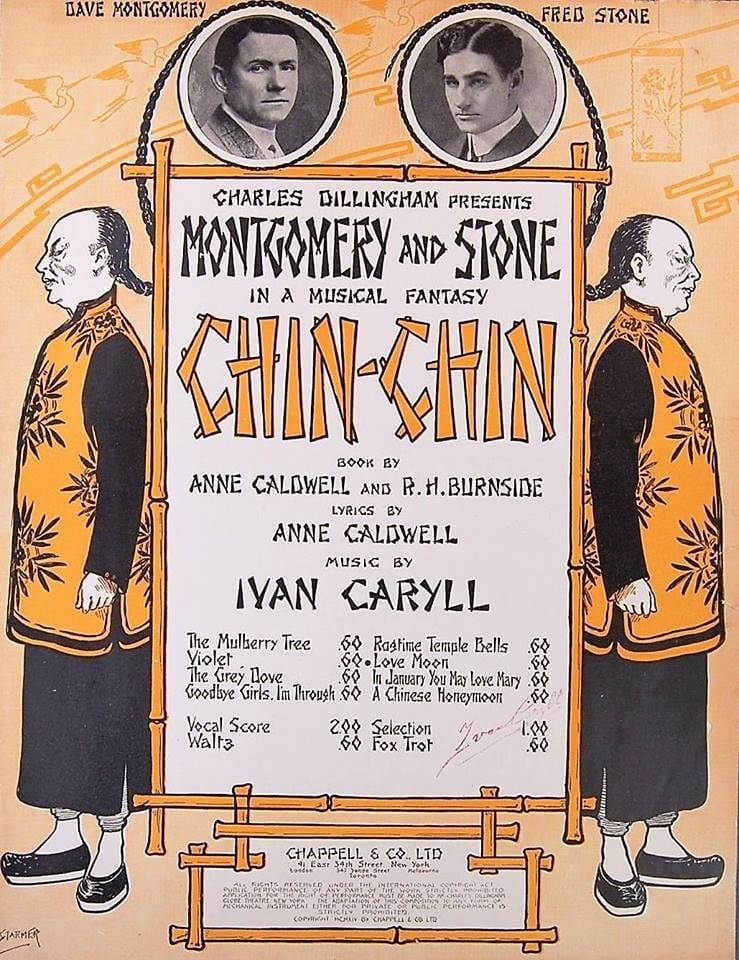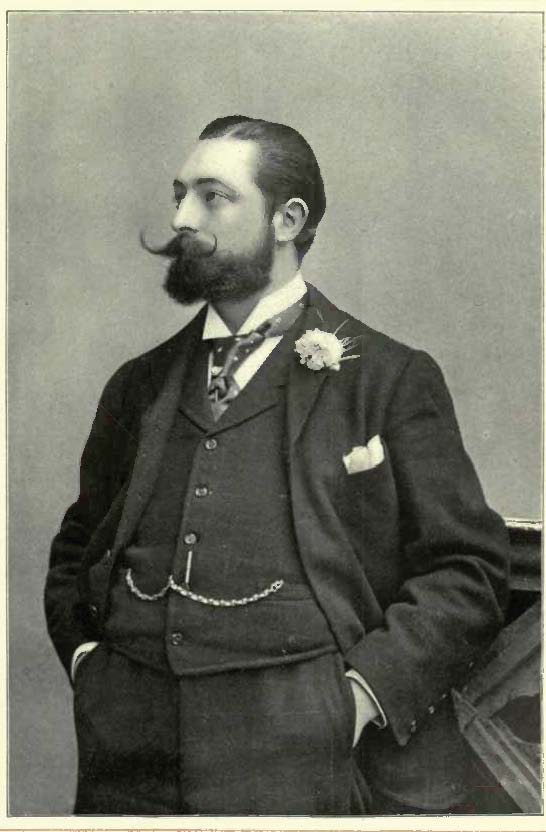Kurt Gänzl
Encylopedia of the Musical Theatre
1 January, 2001
An updated version of the Aladdin story, rewritten to feature the comedians Dave Montgomery and Fred Stone, Chin-Chin cast its stars as twin slaves of the lamp, Chin Hop Hi (Stone) and Chin Hop Lo (Montgomery) who managed the evening’s affairs rather like a couple of French revue compères. The show with a book by Anne Caldwell and R. H. Burnside and lyrics by Anne Caldwell premiered at the Globe Theater, New York, on 20 October 1914. Ivan Caryll wrote the music.

Aladdin’s magic lamp in a modern-day amusement park. (Photo: Cesira Alvarado / Unsplash)
The action zipped from one location to another as the two funny genii tried to stop the nasty Abanazar (Charles T Aldrich) from robbing Aladdin (Douglas Stevenson) of the lamp, or helped the boy win the hand of Violet Bond (Helen Falconer), daughter of the ridiculously rich Cornelius Bond (R E Graham), a gentleman who is himself eager to lay greedy hands on the magic lamp.

Sheet music cover for various songs from “Chin Chin.”
When he wasn’t being a genie, Stone appeared as Paderewski, a ventriloquist, Madame Falloffski and a gendarme, whilst Montgomery impersonated the Widow, a coolie, a clown and a second gendarme.
The stars introduced themselves singing about ‘A Chinese Honeymoon’ (lyrics: Bryan Williams), and Stone followed the then fashion for all that swung by launching into ‘Ragtime Temple Bells’ (lyrics: James O’Dea), whilst Aladdin and his Violet shared some romantic moments (‘Love Moon’, ‘The Mulberry Tree’) and the hero scored a success with his farewell to youthful excesses in ‘Goodbye Girls, I’m Through’ (lyrics: John Golden).
Some lyric soprano pieces were inserted for a creature called the Goddess of the Lamp, as played by Belle Story, waltzing about ‘Violet’ (the colour, not the girl) and the ‘Grey Dove’, and getting sentimental in the final ‘In January, You May Love Mary’. A toys’ chorus, a piece about ‘Shopping in the Orient’ and a ballet divertissement, ‘Will o’the Wisp’, were amongst the other items on the evening’s merry bill.

Composer Ivan Caryll with a dashing beard in 1897. (Photo: Alfred Ellis, from the 1903 publication “Good Old Gaiety”)
Chin-Chin was a splendid success, and served its fun-making stars for 295 performances on Broadway before they took it to the country for a long tour. A production announced by Alfred Butt for London’s Palace Theatre in 1915 did not in the end take place.

Is Love Moon and Goodbye Boys (girls) I’m throughthe same referenced songs in F Scott Fitzgeald’s This side of paradise? Can you get lyrics?